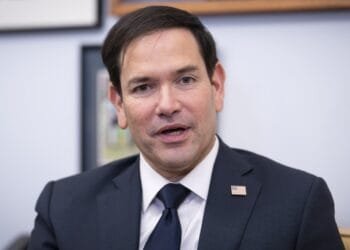Hamas has not commented on the deal yet, but has decried international failure to get humanitarian aid into Gaza.
Hamas is studying a framework proposal put forward by Israel, the United States, Qatar and Egypt in Paris for a truce and prisoner exchange in Gaza.
The Palestinian group has yet to officially comment on the proposal, which was hammered out several days ago in the French capital following mediated negotiations. US President Joe Biden has suggested a halt in the fighting could come within a week, but for now, the conflict, which has killed nearly 30,000 in the enclave, persists, with combat continuing and much of the 2.3 million population suffering from hunger.
The proposal envisages a pause in hostilities that could stretch for six weeks, media Arabic reports quoting informed sources. That would allow for the release of 40 Israeli captives held by Hamas in exchange for 400 Palestinians currently in Israeli prisons.
“That would include women, children, older men and those who might be suffering from medical conditions. It would involve the repositioning of the Israeli military to allow more people to move freely through the Gaza Strip,” said media’s Willem Marx, reporting from occupied East Jerusalem.
“It would include a cessation of aerial reconnaissance by the Israeli military for up to eight hours a day. That’s something we did see during the last series of prisoner swaps [last November] where drones in particular were moved away from areas where prisoners might be released,” he said, adding that significantly increased flow of aid into Gaza is also part of the deal.
Reuters quoted an unnamed source as saying Gaza hospitals and bakeries would be repaired and as many as 500 aid trucks would be allowed to enter the enclave each day as part of an agreement.
The news agency also reported that the framework proposes the gradual return of all displaced Palestinian civilians – except men of military service age – to the northern Gaza Strip, and the repositioning of Israeli forces away from densely populated areas in the enclave.
Israeli and Hamas delegations are reported to be in the Qatari capital Doha for further, but separate, negotiations.
Hamas is yet to comment officially, but sources reportedly suggested to Reuters that Biden’s comments on halting the fighting were “premature” and there are “still big gaps that need to be bridged”.
The Israeli media has been expressing a degree of pessimism about the possibility of a deal, reports media’s Willem Marx from occupied East Jerusalem.
“They say what Israeli officials here are hearing is that Hamas is not happy with some of the terms,” he said. “One of the sticking points might be the idea of Israel repeatedly saying that even if there is a ceasefire, they will push on through into Rafah. But Hamas would like this to be a permanent ceasefire, and that may be a very central contradiction in terms of trying to find a resolution long term.
“The details of the deal,” Marx sums up, “are still quite nebulous.”
‘Big gaps’
The need for a deal allowing accelerated humanitarian aid is becoming increasingly urgent as warnings of hunger rise.
One month after the International Court of Justice emergency ruling for Israel to prevent acts of genocide in Gaza, Hamas said the world “stands witness to the escalation of the occupation’s crimes and violations”.
Israeli Prime Minister Benjamin Netanyahu has repeatedly said that even if an agreement is achieved, it would only serve to delay a looming ground invasion of Rafah, the southernmost city in Gaza bordering Egypt where 1.4 million Palestinians are sheltering, most of whom have been displaced.
Hostilities continued on Tuesday. Israeli forces claimed to have killed dozens of Hamas fighters in Gaza City as they discovered weapons manufacturing facilities and rocket launchers in tunnels, as well as in battles in central areas of the enclave.
Alongside the push to win agreement on the Paris proposals, the US is trying to pass a UN resolution that expresses support for diplomatic efforts to “urgently” reach a “temporary ceasefire” agreement, according to a copy seen by media’s Rami Ayari.
US Ambassador to the UN Linda Thomas-Greenfield said in an interview on Monday that she believed the US “alternative resolution” is “more relevant to supporting the efforts on the ground to get us to that temporary ceasefire”.
The new proposed text comes after the US vetoed a UNSC resolution put forward by Algeria last week. Thomas-Greenfield claimed at the time that Algeria’s resolution could interfere with the ongoing truce talks.











